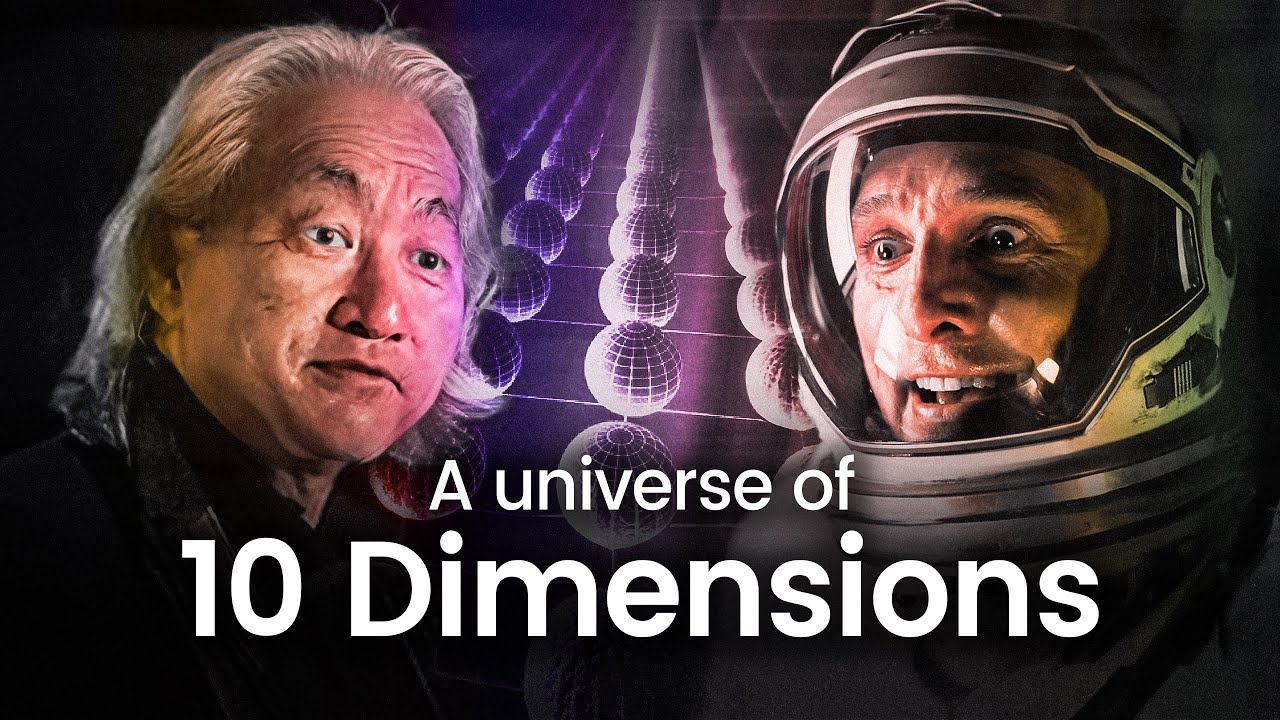How God is Both One and Three at the Same Time [Animated Explainer]
Summary
TLDRThe script explores the complex concept of the Trinity in Christianity, using the analogy of a 3D object passing through a 2D plane to illustrate God's transcendence beyond human understanding. It delves into the Hebrew Scriptures, highlighting God's attributes as distinct yet part of the divine, and the 'Son of Man' as part of God's identity. The New Testament is examined, portraying Jesus as both human and divine, and the Holy Spirit as a conduit of God's love. The summary emphasizes the biblical narrative of an eternal community of love, urging a personal relationship with this complex divine reality.
Takeaways
- 📜 The script discusses the theological concept of the Trinity, explaining the Bible's depiction of God as both one and three-in-one.
- 🤔 It uses the analogy of a 3D object passing through a 2D plane to illustrate the complexity of understanding God's nature from a human perspective.
- 👨👧👦 The concept of God's attributes being distinct yet part of God is explored, showing how they can be personified in the Bible, such as wisdom, glory, and the word.
- 🌐 The script explains that God's Spirit is a distinct aspect of God, representing His personal presence and energy within creation.
- 👤 It highlights the 'Son of Man' from the Book of Daniel as a significant part of God's identity, showing a human figure elevated to divine status.
- 🕊 In the New Testament, Jesus is portrayed as both fully human and divine, embodying the complex identity of God made flesh.
- 👑 Jesus' actions and words in the Gospels are presented as evidence of His divine nature, such as forgiving sins and controlling nature.
- 🌟 The Apostles referred to Jesus using the language of God's attributes, like 'Glory of God' and 'Wisdom of God', reinforcing His divine identity.
- 🗣️ Jesus' relationship with God the Father is depicted as personal and intimate, with Jesus experiencing the Father's love and referring to Him as 'My Father'.
- 💭 The Holy Spirit is portrayed as the medium through which Jesus and humanity experience God's love and interact with the divine.
- 🔗 The Trinity is presented as an eternal community of love, holding the universe together, and inviting humanity to participate in this divine love.
Q & A
What is the central question raised in the script about the nature of God according to the Bible?
-The central question is how God can be both one and also exist as three distinct persons: the Father, the Son, and the Holy Spirit, which is known as the concept of the Trinity.
What analogy is used in the script to help understand the complexity of God's nature?
-The analogy of a three-dimensional object passing through a two-dimensional plane is used to illustrate how something can be perceived as multiple entities from a limited perspective, but is actually one unified reality.
How does the script describe God's attributes in the context of the Hebrew Scriptures?
-God's attributes, such as wisdom and glory, are described as having a distinct person-like quality, sometimes appearing as separate characters, yet still being part of the one God.
What is the significance of the 'Son of Man' in the Book of Daniel and how does it relate to God's identity?
-The 'Son of Man' in Daniel's vision is seen as a human figure elevated to God's space, symbolizing the hope of God and humanity becoming one to rule the world together, thus being both distinct from God and a part of God's identity.
How is Jesus of Nazareth portrayed in the New Testament in relation to God?
-Jesus is portrayed as both fully human and as YHWH, the God of Israel, performing actions and bearing titles that signify his divine nature while also being distinct from God the Father.
What is the relationship between Jesus and God the Father as depicted in the script?
-Jesus experiences God the Father as a personal being, a source of infinite love, and refers to him consistently as 'My Father,' indicating an intimate and personal relationship.
How does the Holy Spirit interact with both Jesus and humanity according to the script?
-The Holy Spirit serves as the medium through which Jesus experiences the Father's love and through which the Father's love is shared with all humanity and creation.
What does the script suggest about the nature of the universe in relation to God?
-The script suggests that the universe is held together by an eternal community of love, reflecting the triune nature of God as the Father, the Son, and the Holy Spirit.
What is the purpose of understanding the concept of the Trinity as described in the script?
-The purpose is not merely to understand God intellectually but to know and be known by God, participating in the divine love that is central to the Christian faith.
How does the script address the potential confusion about God being both one and three?
-The script acknowledges the complexity and mystery, using analogies and biblical narratives to provide a framework for understanding the unity and distinction within the Godhead.
Outlines

This section is available to paid users only. Please upgrade to access this part.
Upgrade NowMindmap

This section is available to paid users only. Please upgrade to access this part.
Upgrade NowKeywords

This section is available to paid users only. Please upgrade to access this part.
Upgrade NowHighlights

This section is available to paid users only. Please upgrade to access this part.
Upgrade NowTranscripts

This section is available to paid users only. Please upgrade to access this part.
Upgrade NowBrowse More Related Video

Holy Trinity explained in 3 minutes!

The Trinity Explained in UNDER 3 Minutes!

The Trinity explained in 5 minutes

"What If You Could Access the TENTH Dimension?" | 10D Explained

Muslim Debating Godlogic Accidentally DESTROYS Tawheed!🤯🔥 #islam #allah #muslim #godlogic #christian

3 CARA MEMAHAMI ALLAH TRITUNGGAL
5.0 / 5 (0 votes)